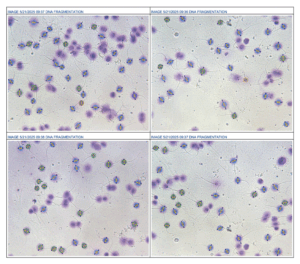Globally, infertility affects one in seven couples trying to conceive, with the highest rates observed in south and central Asia, sub-Saharan Africa, the Middle East, north Africa, and central and Eastern Europe. Many of the established risk factors are similar for men and women. While factors such as lifestyle and genetics have long been recognized as influential, many recent studies show that environmental pollutants play a significant role.
Now, a Danish study published in the British Medical Journal (BMJ) provides new insight into the association between road traffic noise, air pollution, and infertility.
The connection between traffic, pollution and fertility
Previous studies have found that particulate air pollution can harm sperm quality by reducing sperm count, motility, and morphology. Additionally, exposure to air pollution may reduce fertility treatment success rates in women. Similar to air pollution, road traffic noise has been linked to several chronic health conditions. Noise can trigger a stress response and also disrupt sleep. When combined, they can negatively affect reproductive function. However, there is still limited research on the specific effects of noise on infertility.
This latest study involved a large cohort of Danish people (526,056 men and 377,850 women) and investigated associations between long-term residential exposure to road traffic noise and particulate matter with a diameter <2.5 µm (PM2.5) on male and female fertility. By leveraging a comprehensive dataset of health records and environmental data, the researchers were able to examine these relationships in detail.
16,172 men and 22,672 women were diagnosed with infertility during a mean follow up of 4.3 years and 4.2 years respectively. The study found that PM2.5 was associated with a higher risk of infertility in men, whereas road traffic noise was associated with a higher risk of infertility in women over 35 years of age, and potentially in men older than 37 years.
As many countries experience declining birth rates and increasing maternal age, knowledge of environmental pollutants is imperative. As the study authors conclude, if future studies confirm these findings, “higher fertility could be added to the list of health benefits from regulating noise and air pollution”.
Key Takeaway
Road traffic noise is associated with a higher risk of an infertility diagnosis among women over 35 years, and potentially among men older than 37 years. Additionally, exposure to particulate air pollution is associated with an increased risk of an infertility diagnosis in men. Many people are exposed to worrying levels of air pollution – having this insight is important not only for fertility professionals but also in terms of global health. If confirmed by additional studies, the results of this research may have implications for clinical practice, public health policies and environmental regulations.
Stay updated with the latest in fertility research and technology. Explore the latest sperm testing solutions available for fertility clinics, sperm banks and laboratories here




